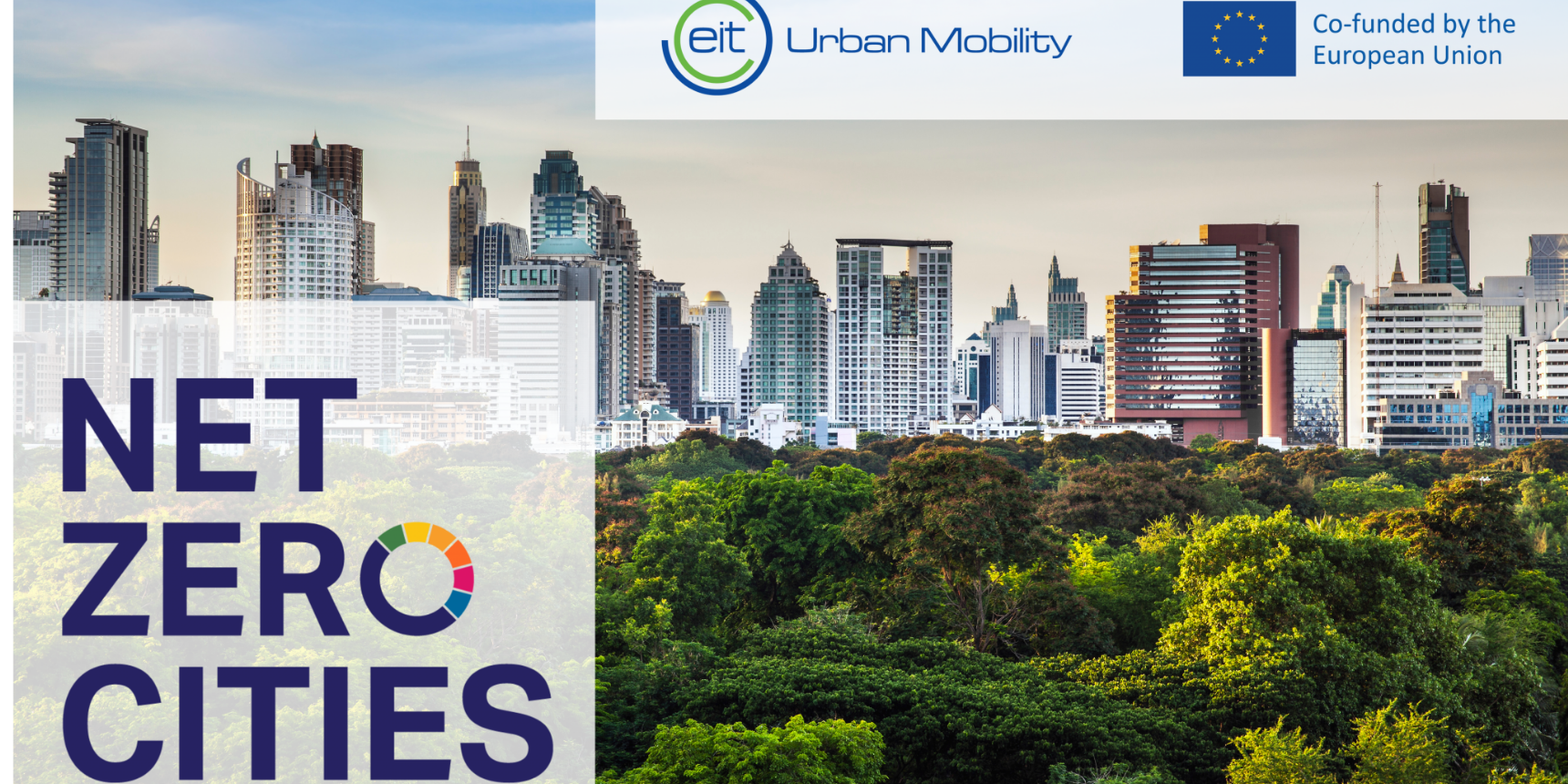NetZeroCities: EIT Urban Mobility working to support cities to achieve climate neutrality by 2030

Horizon Europe, the European Green Deal and other European Union policies and directives propel European Member States towards a 55% cut in emissions by 2030 and climate neutrality by 2050.
Cities are envisioned to lead in this respect, achieving net zero carbon emissions faster and ensuring our decarbonisation efforts are equitable and contribute to the well-being of European communities. This level of impact is an extraordinary undertaking for each city and will require profound and systemic changes. Government leadership will be critical, and actions by industry, education and research institutions, and civic organisations must align in terms of policies, governance, and how we arrange for the needed capital investments.
Launched in October 2021, NetZeroCities is a four-year project designed to help cities overcome the current structural, institutional, and cultural barriers they face in order to achieve climate neutrality by 2030. The project will enable European cities and citizens to show the way forward towards an inclusive, thriving, climate resilient and sustainable future and this will be achieved by working in:
- The development of a service-oriented platform supported by world-class practitioners.
- The co-creation of solutions needed to achieve net zero goals in a socially inclusive way
- Capacity building on systemic change, citizen engagement and democratic governance, capital and financial structuring, and social innovation
- The development and promotion of new and existing tools, resources, and expertise into a one-stop shop platform that will be accessible to all cities through an online portal
- Supporting of up to 30 pilot cities to help drive rapid learning about how to achieve climate neutrality at the city scale
Cities will benefit from an intensive support relationship and dedicated services to achieve their net zero goals. The project supports the EU’s Mission of “100 Climate-Neutral and Smart Cities by 2030” newly launched as part of the Horizon Europe programme. The Mission seeks to scale the activities of this project across 100 cities, and to tackle the unprecedented capital investments needed to make such a transformation possible.
Role of EIT Urban Mobility
To achieve this, NetZeroCities gathers 33 partners from 13 countries. EIT Urban Mobility as a member of the partnership will bring its knowledge and expertise on sustainable urban mobility and transportation, as well as its strong ties to cities and network organisations in the field. EIT Urban Mobility will contribute to the call for pilots and engage with cities to understand their barriers, drivers and needs to achieve climate neutrality targets. With other NetZeroCities partners, we will direct support to cities in the scaling up of piloted and tested solutions and provide state-of-the-art expertise on mobility solutions to help cities reach climate neutrality.
By working in the implementation of NetZeroCities, we are supporting our vision of creating more liveable urban spaces, by fostering innovation and transformation to improve quality of life and decarbonisation in European cities.
NetZeroCities is coordinated by EIT Climate-KIC and builds on the expertise of its partners, leveraging a vast array of knowledge and expertise, as well as access to a large network of cities throughout Europe.
Project partners
- Associations & Networks: Climate Alliance, The Democratic Society, EIT Climate-KIC, EIT Urban Mobility, Energy Cities, ERRIN – European Regions Research and Innovation Network, Eurocities, ICLEI, Open & Agile Smart Cities, REGEA, Resilient Cities Network, Union Internationale des Transports Publics, Viable Cities.
- Research organisations: Cartif, Cerema, Demos Research Institute, Fraunhofer Institute, Tecnalia, TNO, VTT Technical Research Centre of Finland.
- Universities: Austrian Institute of Technology, Frankfurt School of Finance and Management, Politecnico di Milano, TalTech – Tallin University of Technology, Universidad Politécnica de Madrid, KTH Royal Institute of Technology.
- Think-tanks: Institute for European Environmental Policy.
- Companies and consultancies: Bankers Without Boundaries, Dark Matter Labs, LGI, Material Economics, Metabolic Institute, Rupprecht Consult, South Pole Carbon Asset Management.


 Share this page
Share this page


